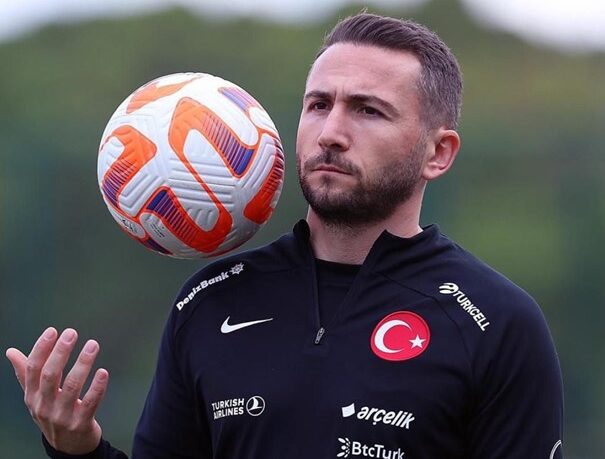Vural Durmuş is an experienced athletic performance coach and respected figure in Turkish football. With nearly 15 years at the top level, he has consistently worked at the intersection of physical performance, injury prevention, and elite player development. He currently serves full-time with Galatasaray’s first team and supports the Turkish National Team during camps and tournaments.
Durmuş began his professional journey in 2013 at Galatasaray’s academy, before quickly moving up to the first-team staff under Roberto Mancini. Over the following five years, he worked with leading coaches such as Cesare Prandelli, Hamza Hamzaoğlu, Mustafa Denizli, Jan Olde Riekerink, Igor Tudor, and Fatih Terim. During this period, he contributed to winning two Süper Lig titles, two Turkish Super Cups, and four Turkish Cups. After leaving Galatasaray in 2018, he joined Kasımpaşa as performance coach, and later worked privately with professional footballers during the pandemic, focusing on injury recovery and return-to-play programs.
In 2021, he was invited by Hamit Altıntop to join the Turkish National Team staff under Stefan Kuntz, later continuing under Vincenzo Montella. In addition to his work on the pitch, he was entrusted with leading the National Team’s Athletic Performance Department, further establishing his reputation as a key figure in Turkish football’s modern training methods. In 2024, after the European Championship, he rejoined Galatasaray, now working within Okan Buruk’s coaching staff.
Durmuş holds a UEFA A License and the TFF Athletic Performance Coaching diploma, as well as a Master’s degree in Movement and Training Sciences. His career reflects a deep commitment to professionalism, collaboration, and the long-term development of players at the highest level of the sport.
Our Exclusive Interview with Vural Durmuş
Who is Vural Durmuş?
After a background as an amateur footballer, I completed my university studies in Sports Sciences and began my career as an athletic performance coach. For nearly 15 years, I have been working with top-level professional football teams. I currently serve full-time with Galatasaray’s first team and collaborate with the Turkish National Team during international camps.
During my student years, I coached at amateur clubs across all age groups and levels. After graduating, I joined Galatasaray Football Academy in 2013 as an athletic performance coach through a project led by a highly respected professor of mine. About six months later, during Roberto Mancini’s tenure, I was integrated into the first-team staff, marking my first steps into professional football. Over the next five years, I served as an athletic performance coach for Galatasaray’s senior team.
In this period, I worked alongside renowned coaches such as Roberto Mancini, Cesare Prandelli, Hamza Hamzaoğlu, Mustafa Denizli, Jan Olde Riekerink, Igor Tudor, and Fatih Terim. Together, we celebrated two Süper Lig championships, two Turkish Super Cups, and four Turkish Cups.
Following the championship at the end of the 2017–2018 season, I left Galatasaray and continued my career at Kasımpaşa, working within the technical staffs of Mustafa Denizli and Tayfur Havutçu.
At the onset of the pandemic, I focused exclusively for a year and a half on private training sessions with professional players, particularly in injury rehabilitation and return-to-play programs.
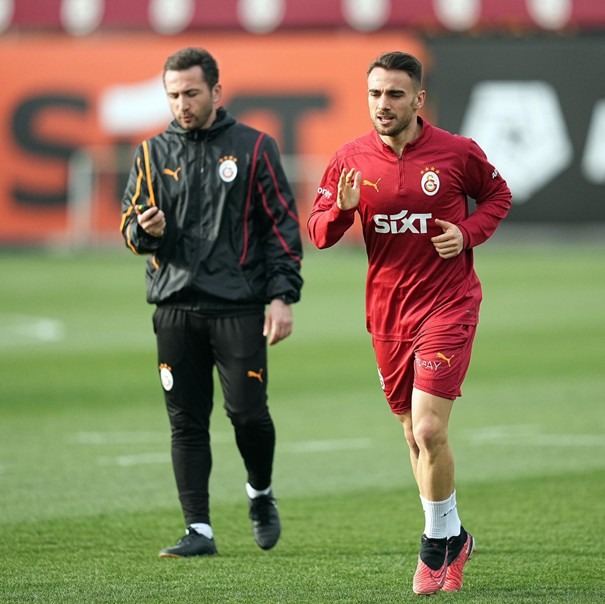
In October 2021, I was invited by Hamit Altıntop, then Head of National Teams, to join the Turkish National Team staff under head coach Stefan Kuntz. I continued my work with the arrival of Vincenzo Montella and his team, taking on not only the role of Athletic Performance Coach for the National Team but also the responsibility of heading the National Teams’ Athletic Performance Department.
After the 2024 European Championship, I accepted an offer from Galatasaray and rejoined the first-team staff under Okan Buruk, where I continue to serve today.
I hold a UEFA A License and the TFF Athletic Performance Coaching Diploma. In addition, I have completed a Master’s degree in Movement and Training Sciences.
What Does It Feel Like to Work with the National Team?
Serving with the National Team is an experience that words can hardly capture – it carries so many profound emotions and represents one of the greatest honors of my career. From the very beginning of my professional journey, working with the National Team was among my highest aspirations. The moment that dream came true remains one of the most unforgettable memories of my life.
I still remember my first call-up. Upon arrival at the National Teams Training Center in Riva, I was given a private room. Waiting there for my equipment, I felt a wave of anticipation. When I finally put on the training gear and looked at myself in the mirror, the magnitude and meaning of the responsibility ahead struck me deeply. That moment will stay with me forever.
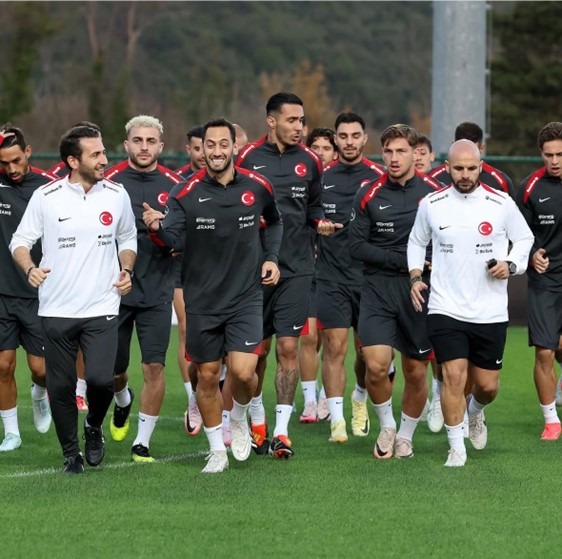
For me, this role is not merely a professional achievement but also a tremendous honor and responsibility. To share the field with players who wear the crescent-and-star emblem, to breathe that atmosphere, provides an indescribable source of motivation. Each training camp is both physically and emotionally demanding, and being part of a structure that represents the nation gives every single task we perform an added layer of meaning. With this awareness, I strive to give more than what is expected, to fulfill my duty in the best possible way.
The National Team is not only about the players; the technical and support staff are also among the very best in their fields. Working with the top Turkish players – those who carry our passport and compete at the highest level – raises the bar in every respect. This is a unique environment where every player wants to be, and where every moment feels valuable.
And I cannot help but add this: for the first time in our history, we qualified for the European Championship as group leaders. During the 45-day preparation camp, not once did I feel tired. Walking toward a shared goal with a young, highly talented, and deeply connected group of players gives you an extraordinary sense of strength and motivation.
Thank you for sharing this valuable and unifying information. However, from the outside, criticism sometimes arises, particularly the perception that players who have argued with each other during the season cannot be successful with the National Team. What is your opinion on this?
First of all, it must be stated very clearly that the National Team environment is far removed from the competitive rivalries or personal disagreements at club level. It is a very special structure where everyone comes together for the country and all stakeholders serve a common goal. During the club season, competition is natural, and tensions may occasionally occur on the pitch. However, professional-level players have the maturity and awareness to make this distinction and manage these processes in the best possible way.
Taking all this into account, we as the technical staff know and observe our players’ individual characteristics and their behavior both on and off the pitch very closely. Every player who joins the camp arrives not with the mindset of the club jersey they wear, but with the awareness that they are there to fight for the jersey with the crescent and star. In fact, what we call the culture of the National Team is built precisely on this awareness.
Of course, problems can sometimes arise within the team. This is inevitable and applies to every team in the world. In a group of about 60–70 people, including a 35-player squad along with the technical and administrative staff, it is not possible for everyone to like each other, but it is absolutely possible to show respect and move toward the same goal. The important thing is how you manage this group made up of differences.
Good leadership is decisive on the road to success. All of our players are very talented and have the potential to perform at the highest level. But talent alone is not enough; adapting to the dynamics of the team, embracing the environment, and feeling a sense of belonging are just as important as technical ability. Once this sense of unity is created, true cohesion and organization emerge on the pitch, and success follows naturally.
You work simultaneously at Galatasaray and with the National Team. How do you manage these two major responsibilities and ensure coordination between them?
Being active in two major, high-level organizations is both a serious responsibility and a very special experience. The most important elements here are time management, planning, and communication. I work full-time at Galatasaray and take part in the National Team during camp periods.
Both organizations operate with a very high level of professionalism, which makes my work easier. Communication channels are open, needs are clear, and roles are well defined. When I am with the National Team, I remain in constant contact with the club side.
To be honest, working between these two setups can sometimes be tiring, but the professional satisfaction is very high. Being able to work with the country’s top athletes, coaches, and professionals on both sides makes a big difference in many respects. Being in such an environment is very valuable for both my development and my career steps. I try to act with full awareness of the responsibility of being worthy of these roles.
During the intense pace of the season, I always feel the support of my club, which allows me to carry out my duties with the National Team smoothly. The technical staff I work with at the National Team also shows great respect for this matter, and by ensuring mutual coordination, we work without problems. When I received the offer from Galatasaray, I made it clear that I wanted to continue my involvement with the National Team, and Okan Buruk welcomed this, which was one of the decisive factors in my final decision. Vincenzo Montella and his staff also made it clear that, as long as there were no issues on the club side, they wanted to continue with me.
The National Team processes fall at specific times of the season, usually in the form of short camps lasting 8–10 days. Before each camp, the Turkish Football Federation sends an official notice to the clubs. While I continue my duties at the club, my colleagues provide great support in my absence, and when needed, I continue to support the players remotely.
The most critical point is this: both at Galatasaray and with the National Team, there are established systems that function under the leadership of the head coaches. Thanks to this strong coordination, it is possible to work efficiently with both sides.
You not only work with players based in Turkey but also with those playing for some of Europe’s biggest clubs, such as Hakan Çalhanoğlu (Inter), Kenan Yıldız (Juventus), and Arda Güler (Real Madrid). Do you see significant differences between these players and those competing in Turkey?
This is actually one of the questions I am asked most often. I consider working with players from Europe’s elite clubs to be a very valuable and special experience. These players have reached a certain level not only in terms of technical and tactical ability but also in mentality and work ethic. However, this does not mean that one can make a blanket statement such as “those playing in Europe are better.” In Turkey as well, we have players who have reached a very high level both physically and tactically, who take great care of themselves, and who maintain a high degree of professionalism. From a physical perspective, I do not see significant differences between the players you mentioned and those competing in the Turkish league in similar positions. Of course, the systems and game plans in European clubs can raise players to different levels.
In recent years, under the influence of quality foreign coaching staffs and elite-level players coming to our country, both the game quality and the professional approach of players competing in the Turkish league have improved considerably. If we look back about 15 years, there were indeed clear differences between Europe and Turkey. But in recent years, thanks to these high-quality foreign players and coaches, Turkish football has advanced significantly both in terms of play and professional standards.

This development has not been limited to player quality; the level of awareness among Turkish coaches has also risen. Since modern training techniques often require extra work before or after training, our players have now become more conscious and more open in many respects compared to the past.
To give a simple example, when a player competing in Turkey meets another playing in Europe during a National Team camp, they naturally exchange experiences and knowledge. They discuss how their teams work, their travel arrangements, and camp organizations, which raises the overall level of awareness.
Looking back on my time at Galatasaray, I had the opportunity to work with many top-level coaches. The training systems and working methods they implemented introduced structures that were not very common in Turkish football at the time. When we applied these systems and achieved positive results, we began to embrace them ourselves. Similarly, the individual training approaches and habits brought in by some players from Europe also served as examples for us, which naturally improved our own coaching practices.
In recent years, with the updated coaching education programs jointly organized by UEFA and the Turkish Football Federation, the coaching approach in Turkey has also become significantly modernized. Training systems have come very close to European standards. However, it is important not to overlook cultural differences at this point. We have certain habits that are innate or shaped by our environment, and sometimes it is difficult to break these patterns. So while the content and intensity of training may resemble those in Europe, the off-field cultural aspects can make the process a bit more challenging.
The more contact we have with countries that play good football and have strong organizational structures – whether through coaches, player transfers, or data exchange – the more positively it affects the organizational framework of our league. From youth academies up to the Süper Lig, the more correctly this structure is built, the further we can advance as a country. However, it should also be noted that this organizational structure is still in a phase of development. Consequently, while one area improves, it is possible that another may remain lacking.
How do you manage your cooperation with the head coach, assistant coaches, and the medical staff? In your opinion, what is the role of building a common language and trust in a performance-oriented environment? You have also worked with head coaches of very different characters. How did you manage this diversity?
In modern football, success is no longer determined solely by the performance of the eleven players on the pitch, but by the harmony and coordination of all the units working under the umbrella of a club or the national team. In this sense, the communication structure and coordinated work between the head coach, assistant coaches, performance staff, analysts, medical teams, and support staff are absolutely critical and decisive.
In my own field of work, I always prefer to share information objectively, prioritize open communication, and maintain a transparent approach. Topics such as correctly evaluating performance data, planning player workloads, managing injury risk, and overseeing return-to-play processes all require a shared understanding. This is only possible through mutual trust and a common language. Once a trust-based bridge is established between us and the technical staff, decision-making processes become much healthier and sustainable.
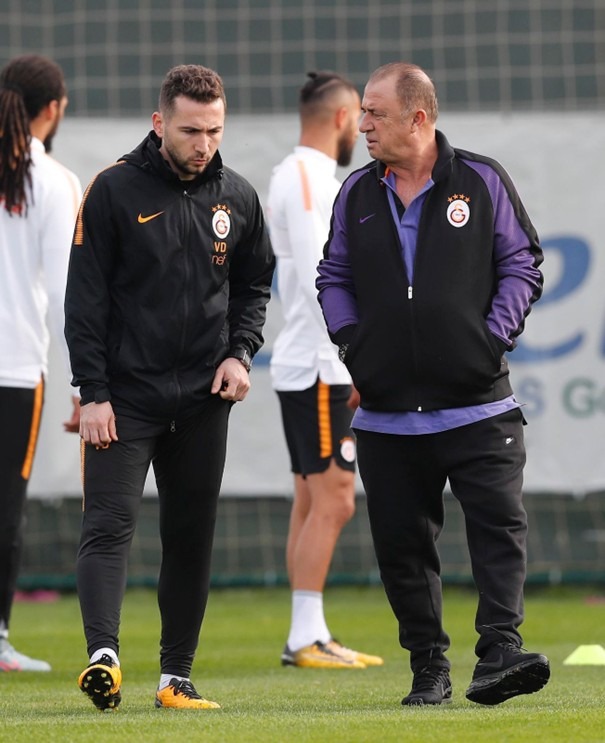
From Roberto Mancini to Fatih Terim, from Prandelli to Igor Tudor, and currently with Okan Buruk and Vincenzo Montella, I have worked with head coaches of very different characters and philosophies. These experiences gave me the chance to encounter many different approaches. The lessons I took from these processes are extremely valuable to me – almost like a handbook you should always keep by your side. Each coach has a different football philosophy, communication style, and set of expectations. Being able to adapt to these differences and work together opens new perspectives and opportunities for growth in many ways.
The functioning of technical staffs usually follows a defined system. Assistant coaches in particular play a role just as important as the head coach. They are the key figures who reduce the workload of the head coach, ensure organization with other departments, and manage communication both within the staff and with the players.
As for the structure of the medical team, it generally consists of a chief doctor leading physiotherapists and masseurs. As a unit, they play a critical role in ensuring that players are optimally prepared for training and matches. They provide the technical staff with continuous updates on issues such as identifying players at risk of injury, implementing preventative programs, treating injuries, and carrying out regeneration work.
For example, in the return-to-play process after an injury, we plan in advance with the assistant coach which parts of the training a player will participate in and which parts will be done individually. At this point, cooperation with the medical team is also of great importance.
For this process to run smoothly, communication within the staff is vital. Without fast, transparent, and professional collaboration, it is not possible to expect efficient outcomes from these transitions. A similar structure exists within the National Team as well, although camp periods there are shorter, which means that action plans must be implemented more quickly.
I have worked with many different head coaches, each with their own style, and each one has given me different perspectives. Successfully managing these differences is possible by adapting to the team culture and being flexible in your communication style according to the situation. This is a skill that develops over time.
How is the training organization at Galatasaray structured? Can you describe a typical daily training session for us?
The training organization operates according to a specific system and order. The medical and performance teams first evaluate the condition of the players. The technical staff then comes together to analyze the programs prepared for that day. Based on the information provided by the medical team, the training session is designed. While preparing this structure, factors such as the content of that day’s session, the workloads from the previous day, the physical condition of the players, injury risks, and the upcoming match schedule are all taken into account.
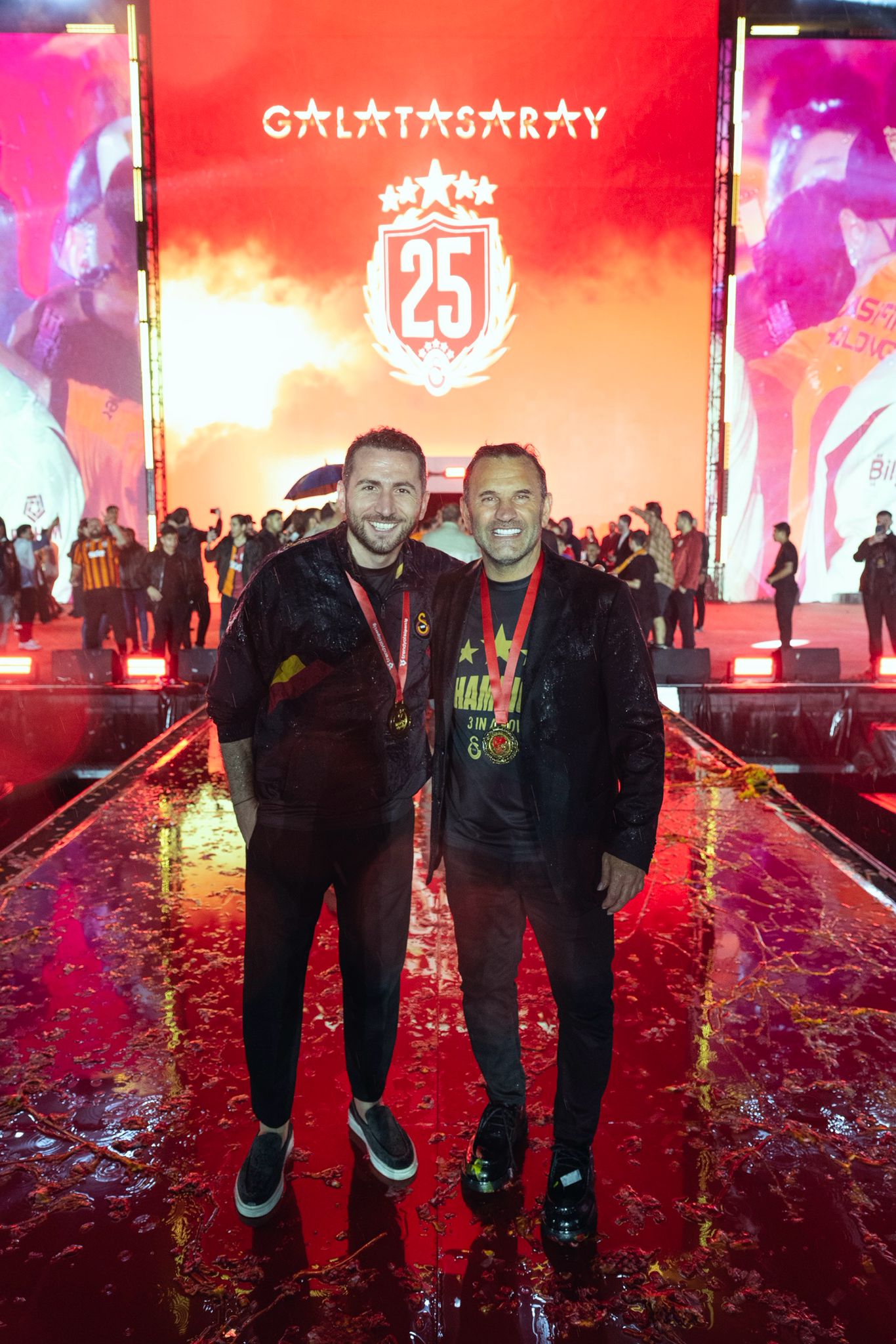
Before the official training session begins, players start their preparation processes in the fitness area and treatment room.
Once the on-field program is completed, players with individual programs continue their work either on the pitch or in the gym. Those who finish their training move on to recovery applications.
Throughout this entire process, the performance team, medical staff, and technical staff remain in constant communication. Every workload is planned and monitored in real time, the data from the training sessions is analyzed, and the plans for the following days are shaped accordingly. In other words, every exercise you see on the field is backed by thorough planning and coordinated teamwork.
Do you have a particular message or principle that holds special meaning for you in high-performance sports? How do you convey this perspective to athletes and future coaches?
The world of high performance is unique and intense. You cannot survive here with ordinary effort; it requires serious dedication, consistency, and commitment. If I were to define this field in a single word, it would be “devotion.” Because you are taking on a heavy load, both physically and mentally. While trying to balance your personal life, you must also meet the high demands placed upon you.
I always emphasize to the athletes I work with: in this profession, both good performances and bad performances are part of the journey, and the transition between the two can happen very quickly. We are all human; sometimes we make mistakes, sometimes we perform above expectations, sometimes below. What matters is being able to accept and manage these ups and downs in a healthy way. Staying grounded when you are at the top and being able to rise again after a setback requires real discipline and mental maturity. In both cases, being objective with yourself is of great importance.
For me, the essence of this profession is: “Goal = Work.” Thoughts like “It doesn’t matter if I skip this exercise today” or “It won’t hurt if I eat this dessert” may seem harmless in the short term, but in the long run they take you away from your goals. At the same time, overdoing everything is not sustainable either. The key is adopting a balanced, systematic, and consistent lifestyle. This is particularly evident in individual sports. Take tennis players, for example: sometimes they play matches that last five hours. This cannot be explained by physical endurance alone. Those extraordinary comebacks are the result of mental and emotional resilience combined with strategy.
The clearest message I want to give to future coaches and young athletes is this: if you truly love this profession, you must embrace sacrifice, disciplined living, and consistency as guiding principles. Success is not only about talent; it is about a philosophy of life that makes that talent sustainable.
How important is education, especially for young coaching candidates? Do you still continue to develop yourself?
It is absolutely vital. I still actively pursue education and try to draw from as many different fields as possible. Generations change; people change, the profile of footballers changes, coaches’ expectations and players’ approaches are constantly evolving. Therefore, we also need to keep ourselves continuously updated.
It is impossible to move forward today with the same knowledge we acquired ten years ago. Being open to processes of change and development is always important, but this change should be managed with patience and not with haste. Learning, reading, researching, and investing in yourself is a never-ending journey. Football cannot be limited to “90 minutes, 11 against 11.” Beyond tactics, it also involves managing a group of 30–35 individuals, each with different personalities, perspectives, and experiences. You cannot approach every player in the same way; this is why you must constantly review your perspective and routines.
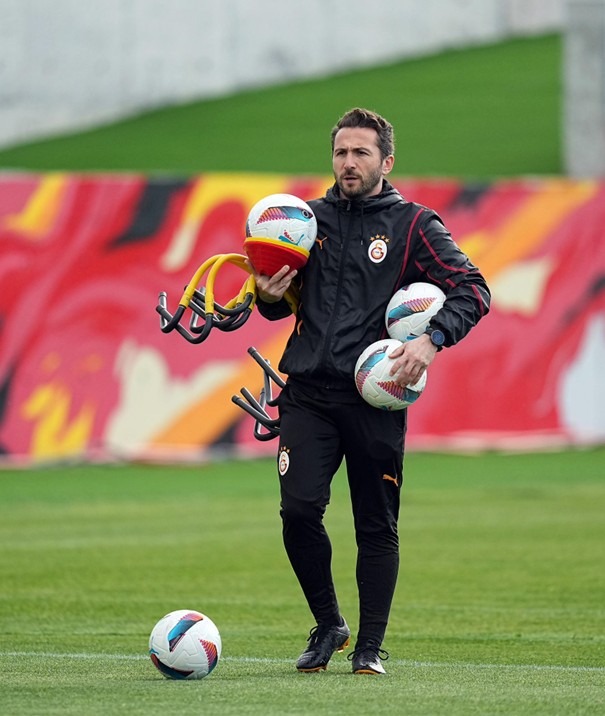
I do not limit myself to football-related courses or training. I read about art, draw valuable lessons from biographies, and sometimes even get inspired by acting performances in cinema. I try to extract meaning from every detail, often asking myself: “What can this add to me?” Because what I tell players also applies to us: if we are to serve in top-level clubs, we must be ready not only in terms of knowledge but also in vision.
One of the most critical skills in coaching is process management. Every player has a different worldview, dreams, perceptions, experiences, and ways of reacting. Therefore, you cannot approach everyone in the same language. The ability to understand different profiles, analyze them, and respond appropriately at the right time is one of the most important qualities of a good coach.
What role does learning languages play in this process?
For me, language is something I would call an absolute “must.” To be honest, I am very critical of myself in this area. I wish I had invested more time and effort into it earlier. My English is at a certain level now, but because it is not more advanced, I occasionally face difficulties, and that bothers me. That is why I continue to work on it whenever I find the opportunity.
Moreover, I recommend not only learning English but, if possible, also a second language. This is a major advantage when it comes to understanding different cultures, following scientific research and current publications, and integrating more easily into social life. I have a very clear piece of advice for young coaching candidates: in addition to English, make sure you learn another foreign language.
We give the same advice to young players. Almost every player dreams of playing abroad. But without knowing the language, without engaging in social life, and without understanding the culture of the country they live in, achieving success is nearly impossible. And it is not just about failure – this process can also cause serious psychological harm to the player. That is why early language education is a major investment, both for sporting and personal development.
How do you evaluate the development of athletic performance in Turkey? Especially regarding youth academies, what structural changes would you like to see in the coming years?
This question should really be divided into two parts. Starting with the first-team level, I can say that in the past ten years there has been significant progress. In many areas such as equipment, training monitoring, and performance analysis systems, we have come very close to European standards. Especially at the Süper Lig level, clubs now work in a data-driven way, implement individualized training and workload plans, and prefer to use advanced analytical tools.
However, when it comes to youth setups and academies, the picture is unfortunately not as bright. Particularly after the pandemic and the economic downturn that followed, many youth organizations were deeply affected. From training conditions to coaches’ salaries and social security, many fundamental issues face serious challenges. The physical infrastructure is also insufficient; for example, there are clubs where four or five different teams have to use the same pitch simultaneously. In such an environment, it is of course very difficult to talk about the development of quality individuals, athletes, and coaches.
Another important issue is the mismatch between children’s school hours and training schedules. Families are faced with the question: “Should this child go to school or focus on football?” Yet there is no guarantee on either side. As a result, many young talents end up caught in between, unable to fully dedicate themselves to either path, and are ultimately lost.
Especially in big cities, while there are many clubs, the level of facilities and infrastructure is quite inadequate. This means that the trajectory of youth academies needs to be examined in much greater depth and redesigned according to actual needs. From time to time, different clubs have developed model projects, but unfortunately, they have not been sustained in the long term. Looking at the overall picture, it is fair to say – albeit with regret – that we still have a long way to go in this area.
At the level of youth national teams, we participate in many international tournaments, often outperforming strong opponents and achieving victories. However, in the continuation of the process, while players from rival countries go on to play at higher levels, the proportion of our players who reach that stage remains unfortunately very low. I believe we need a sustainable football academy structure that not only produces talent but also supports their development in the long term.
If this system were in your hands, what would you change?
First of all, I would try to solve the issue of “physical space,” which is one of the biggest obstacles to investment and development in youth academies. Today, especially in big cities, even a small piece of land is extremely valuable, so instead of building sports facilities, other types of projects are often preferred. This seriously disrupts the creation and development of the kind of ideal youth football infrastructure that is needed.
Even our country’s biggest clubs, which are supposed to be the cornerstones of Turkish football, unfortunately do not have facilities that meet the ideal standards for their academy teams.
At this point, I believe the state’s sports policies have a decisive role to play. In recent years, many of our clubs have been provided with modern stadiums, which was a very important step. But we also need to implement a similar approach for facilities that can be used by youth academies.
This could be achieved through nationwide initiatives at a mobilization level, with projects that raise awareness and make youth academies a priority in sports facility planning. In this way, the foundation of our football – young players – would be given much healthier environments in which to develop.
If these problems are not resolved, we will continue to struggle with developing our talented players properly. Therefore, change must not only be technical and tactical but also systemic and structural, starting from the grassroots.
Do you think youth academies should be moved outside the big cities because of these challenges?
Yes, it is difficult to say a definite “yes” to this, but I believe there will be a tendency in that direction. The very high land costs in big cities make the sustainability of youth projects extremely difficult. For this reason, it is becoming inevitable for some clubs to move toward more cost-effective areas.
Perhaps new, highly functional training and academy centers could be established in regions close to major cities. Players could develop there up to a certain level and then be integrated into top-tier clubs that meet specific criteria. Such a system would not only support player development but also reduce the density within the cities.
However, for all this to become a truly efficient system, more radical decisions must be made. The establishment of youth development standards within a defined framework, and the strict monitoring and support of these standards, is critically important for the long-term success of our football.
Finally, is there anything you would like to add, or a message you would like to give to young footballers and aspiring coaches?
Whether you are a footballer or a coach, whatever role you take on, attaching yourself passionately to your work, fulfilling its requirements, working extra hours when needed, and making sacrifices are all natural parts of this journey. When you eventually see the results of these efforts, you realize much more deeply how meaningful this profession truly is.
I will never forget the feeling of receiving my first winners’ medal. The effort throughout the season, the challenges faced, the sacrifices made, and then the success at the end… being part of that achievement, being within a story that brings joy to millions of people, is truly invaluable. Or when you see the progress of a player you have worked closely with all season, the breakthrough he makes, his return to the National Team, or his receipt of a good transfer offer… these are just some of the outcomes of the details you have touched and the stories you have contributed to.
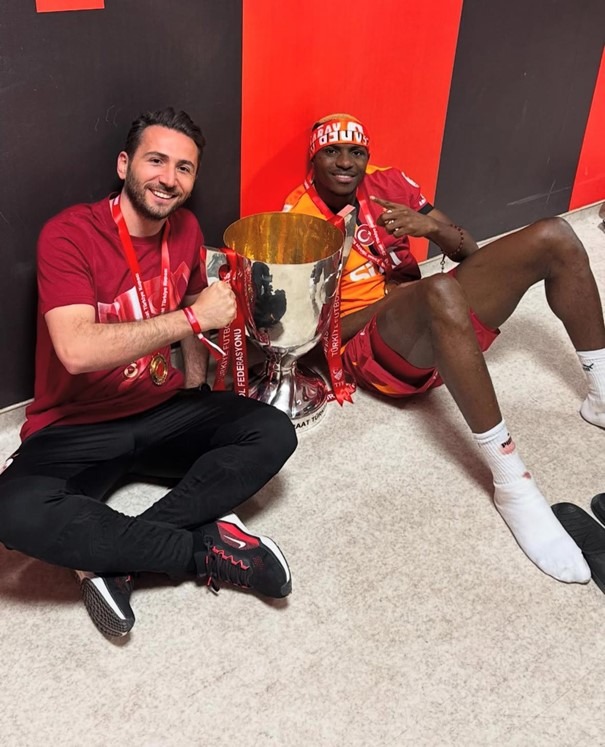
I am someone who grew up with the dream of becoming a footballer but, for various reasons, had to move away from that dream. Perhaps I was not guided properly at the time, or perhaps I did not act with enough awareness myself. But that process became my greatest source of motivation to begin my path as a coach. Now I ask myself this question: “If I could not become one, if I could not achieve it, how can I support those who can?” That is the mindset I carry with me. Wherever I made mistakes or experienced shortcomings, I try to pass these lessons on to the next generation of coaches or young players so they do not lose valuable time.
Because when we bring together people who do their work correctly, who are ethical, and who are open to growth, we create value not only for individuals but also for our country and even for the world. With this belief, I wish for everyone who puts in the effort to have a clear path ahead of them.
Whether you are a young player or a young coach, make your work meaningful. Because success is not just about financial rewards or lifting trophies – it is about leaving a mark.
So far, I have experienced Turkish League, Super Cup, and Turkish Cup victories. I have served with the National Team and had the chance to represent our country in an international tournament like the European Championship. Looking back, from my student days onward – every sleepless night, every moment of fatigue, every sacrifice, every instance where I never stopped – I feel it was all truly worth it.
My hope is that everyone – whether a footballer or a coach – will one day have the chance to experience these feelings. Because living that feeling becomes one of the most meaningful moments of your life, beyond your profession itself.

